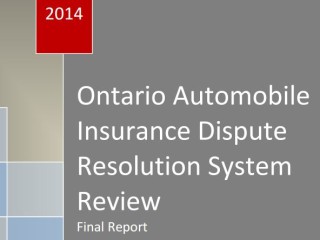The limitation period does not begin to run when the Office of the Public Guardian and Trustee becomes a mentally incapable person’s statutory guardian of property. The limitation period begins to run when the guardian of property has determined that there is a basis for exercising their authority as litigation guardian and thereby becomes the mentally incapable person’s litigation guardian.
Date Heard: March 28, 2017 | Full Decision [PDF]
The applicant, Lois Shaw, was living with Frank Barber but they were not married. Barber died in August 2014 and his will appointed his son as executor and sole beneficiary of his estate. In February 2015, Shaw underwent a capacity assessment and was found to be incapable of managing property. The certificate of incapacity was sent to the Office of the Public Guardian and Trustee (“OPGT”), which became Shaw’s guardian of property under section 16(5) of the Substitute Decisions Act, 1992, SO 1992, c 30.
In August 2016, the OPGT brought an application against Barber’s executor for support under the Succession Law Reform Act, RSO 1990, c S.26. Barber’s executor argued that the application was statute-barred because it was not brought within the six-month limitation period in the Succession Law Reform Act.
Regional Senior Justice McNamara held that pursuant to s. 7(1) of the Limitations Act, 2002, SO 2002, c 24, Sch. B, the six-month limitation period did not run while Shaw was mentally incapable and was not represented by the litigation guardian. Rule 7.02(1.1) provides that where a mentally incapable plaintiff or applicant has a guardian with authority to act as litigation guardian, the guardian shall act as litigation guardian. However, this rule does not provide when the authority shall be exercised.
Justice McNamara held that the authority in the situation at bar, the authority under Rule 7.02(.1) begins when the guardian of property has determined that there is a basis for exercising their authority as litigation guardian. Justice McNamara opined:
As counsel in his affidavit points out, the client they act for as little capacity to properly advise them of her circumstances, so they have to rely on third party information which may support or not support or be neutral towards the incapable person’s position; I agree with counsel that imposing a limitation period commencing as of the OPGT’s appointment as guardian of property is not only contrary the wording of the Limitations Act, but would also create impossible timeless thus creating the potential for injustice being done to vulnerable individuals. (Para 24)
Justice McNamara further noted that Barber’s Estate was not prejudiced by the delay, and there is a provision in s. 9(2) for a potential defendant to take steps to have a litigation guardian appointment for the mentally incapable plaintiff or applicant.
Read the full decision [PDF]











